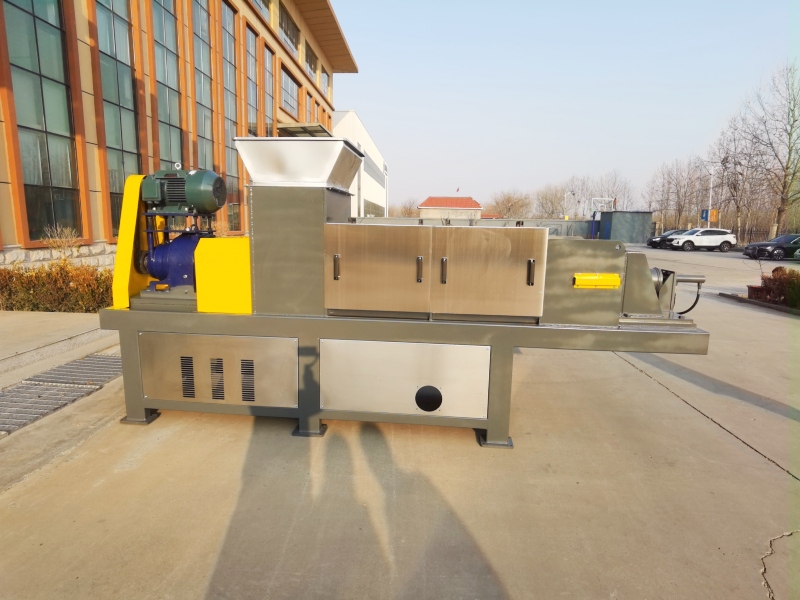
In recent years, the agricultural industry has been exploring innovative ways to manage agricultural waste effectively. Sweet potato farming, a significant contributor to agricultural waste, generates a substantial amount of by-products, including peels, stems, and leaves. Finding sustainable solutions to handle this waste is crucial for environmental conservation and economic viability. This article explores the benefits and functionalities of a state-of-the-art Sweet Potato Waste Dewatering Machine in addressing this issue.
1. Environmental Impact of Sweet Potato Waste
Sweet potato waste, if not properly managed, can lead to environmental pollution and resource wastage. The decomposition of organic waste releases harmful gases, contributing to air pollution and greenhouse gas emissions. Moreover, untreated waste can contaminate water bodies, affecting aquatic life and posing a threat to human health.
2. The Role of Dewatering Machines
Dewatering machines play a vital role in managing agricultural waste efficiently. These machines utilize advanced technology to separate water from solid waste, reducing its volume significantly. By dewatering sweet potato waste, farmers can minimize transportation costs and create valuable by-products for various applications, such as animal feed, organic fertilizer, and bioenergy production.
3. Features of Sweet Potato Waste Dewatering Machines
High Efficiency: These machines are designed for high-speed dewatering, ensuring quick processing of sweet potato waste.
Adjustable Parameters: Users can adjust dewatering parameters to cater to different types of sweet potato waste, enhancing flexibility and efficiency.
Low Energy Consumption: Modern dewatering machines are energy-efficient, minimizing operational costs and promoting sustainability.
Robust Construction: Built with durable materials, these machines are resistant to corrosion and wear, ensuring long-term reliability.
User-Friendly Interface: Intuitive control panels make it easy for operators to monitor and adjust the dewatering process as needed.
Environmentally Friendly: The dewatering process reduces the environmental impact of sweet potato waste by minimizing methane emissions and water pollution.
4. Economic and Environmental Benefits
Implementing a Sweet Potato Waste Dewatering Machine offers several economic and environmental advantages:
Cost Savings: Reduced transportation and disposal costs lead to significant savings for farmers and agribusinesses.
Revenue Generation: By repurposing dewatered waste into valuable by-products, farmers can generate additional revenue streams.
Environmental Conservation: Proper waste management minimizes environmental pollution, contributing to a cleaner and healthier ecosystem.
Compliance with Regulations: Meeting waste management regulations ensures legal compliance and enhances the reputation of agricultural enterprises.
Conclusion
The Sweet Potato Waste Dewatering Machine stands as a beacon of innovation in the agricultural industry. By efficiently managing sweet potato waste, farmers and agribusinesses can achieve economic prosperity while contributing to environmental sustainability. Embracing such advanced technologies not only enhances agricultural practices but also paves the way for a greener and more sustainable future.




If your company wants to establish a business relationship with us, please briefly describe the cooperation intention and send an email to:chuantaiscrewpress@gmail.com























































































![[list:title]](/static/upload/image/20240528/1716877114510915.jpg)